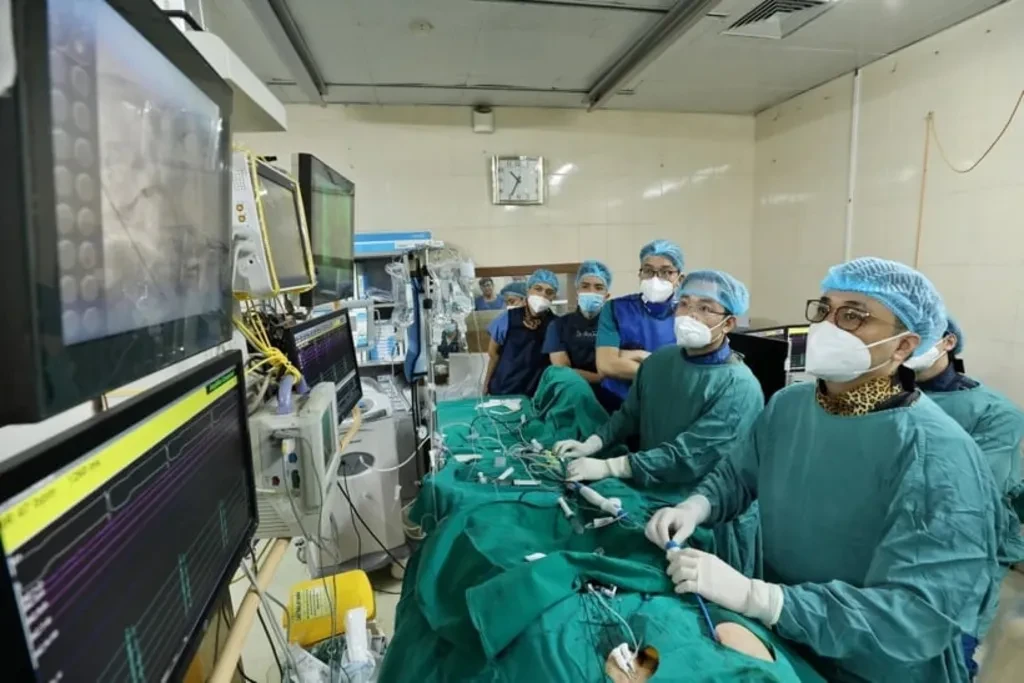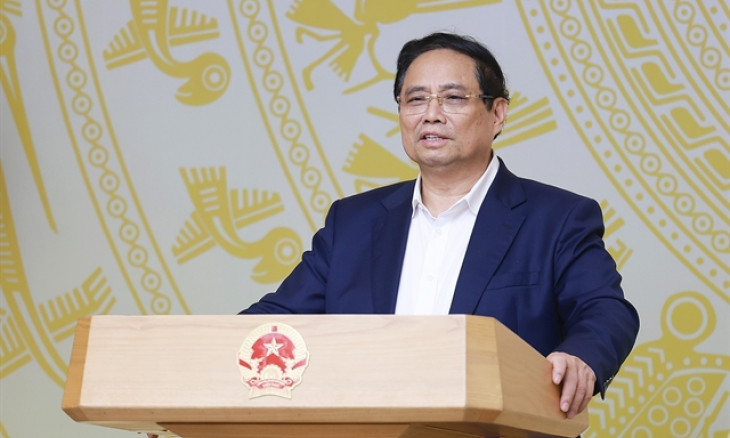Việt Nam to elevate six hospitals to global standards
These upgraded hospitals will be equipped with advanced technologies and offer world-class medical services to both domestic and international patients.
Việt Nam will upgrade six hospitals to international standards, aiming to curb the trend of Vietnamese people seeking medical care overseas, and at the same time, attracting foreign patients to Việt Nam.
In a visionary move outlined in the healthcare network plan in the 2021-30 period, recently endorsed by the Prime Minister Phạm Minh Chính, Việt Nam envisions six hospitals in Hà Nội, HCM City and Thừa Thiên-Huế attaining global recognition for their advanced medical facilities.
Under this strategic plan, Hà Nội will have three state hospitals, two in HCM City and one for Thừa Thiên-Huế.
Earlier, the Ministry of Health (MoH) recommended the modernisation of five specialised hospitals to meet international starndard, rivalling leading healthcare systems in the region and beyond.
These include Bạch Mai Hospital, Việt Đức Hospital, Military Hospital 108, Chợ Rẫy Hospital, and Huế Central Hospital.
Consequently, HCM City will have one more upgraded medical institution.
These upgraded hospitals will be equipped with advanced technologies and offer world-class medical services to both domestic and international patients.
The plan sets targets for healthcare accessibility, aiming for 33 hospital beds, 15 doctors, 3.4 pharmacists and 25 nurses per 10,000 people by 2025.
By 2030, these figures are expected to rise to 35 hospital beds, 19 doctors, four pharmacists and 33 nurses per 10,000 people.
Looking ahead to 2050, the vision is for Việt Nam's healthcare sector to establish several modern facilities on par with international standards, aiming for 45 hospital beds, 35 doctors, 4.5 pharmacists, and 90 nurses per 10,000 people.
Furthermore, the plan entails expanding the scale of private healthcare facilities, with private beds projected to constitute at least 10 per cent of the total by 2025, 15 per cent by 2030, and 25 per cent by 2050.
According to MoH’s data, as of 2023, there were 12.5 doctors and 32 hospital beds per 10,000 people. While this places Việt Nam on par with India and ahead of Indonesia, the nation aims to further align with global standards.
Việt Nam witnesses approximately 13,000 doctors graduating every year across the country. This is the basis for Việt Nam to achieve the goal of having 15 doctors per 10,000 people by 2025.
To achieve these goals, MoH pledges to prioritise the recruitment and retention of qualified healthcare professionals, enhance remuneration policies, and implement pricing regulations to ensure sustainable healthcare financing. Additionally, healthcare facilities will be restructured based on population needs rather than administrative boundaries, fostering more equitable access to medical services nationwide.






